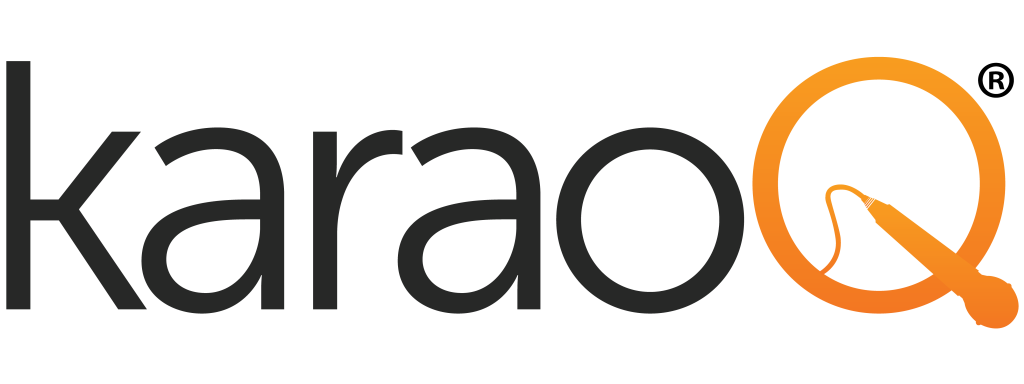
An estimated 93% of DJs still use printed songbooks and paper-slips for patrons. This becomes an exhaustive expense for the DJ and venue. The resulting pains are a negative experience for patrons and result in lower dwell times, less repeat patronage, and fewer dollars spent in-venue.
Name: karaoQ
Location: Nashville, TN
Website: www.karaoQ.com
Product / Service Offering: Mobile music-tech platform / SaaS
Co-founder: Michael Amburgey
This article on karaoQ is part of our Business Startup Spotlight Series featuring entrepreneurs and their companies. We hope these founders’ interviews will inspire and motivate you as you undertake your own entrepreneurial journey.
Tell us a little about yourself with a focus on what motivates you?
 Co-founders Michael Amburgey and Randy Hall have led international teams in development and data conversions for Fortune 50 companies. Michael has led 5 different startups during 12 years at Dell Computers and Caterpillar. He focused on scalable development for global ERP systems and business intelligence / data analytics. Randy has a deep focus in systems architecture, design, and IT strategy – having led ERP deployments in over a dozen countries. Advisors include veterans of the music industry such as Universal Music execs Dawn Gates and Tony Grotticelli, and strategic advisers Shawn Yeager and Brian Rawlings of Back Porch Group. They are guiding product scalability, process execution, and music industry partnerships.
Co-founders Michael Amburgey and Randy Hall have led international teams in development and data conversions for Fortune 50 companies. Michael has led 5 different startups during 12 years at Dell Computers and Caterpillar. He focused on scalable development for global ERP systems and business intelligence / data analytics. Randy has a deep focus in systems architecture, design, and IT strategy – having led ERP deployments in over a dozen countries. Advisors include veterans of the music industry such as Universal Music execs Dawn Gates and Tony Grotticelli, and strategic advisers Shawn Yeager and Brian Rawlings of Back Porch Group. They are guiding product scalability, process execution, and music industry partnerships.
What need or needs does your company seek to fill for its customers?
An estimated 93% of DJs still use printed songbooks and paper-slips for patrons. This becomes an exhaustive expense for the DJ and venue. The resulting pains are a negative experience for patrons and result in lower dwell times, less repeat patronage, and fewer dollars spent in-venue.
What is the one thing that sets your company apart from its competitors?
Competitors: SongBookDB, SongbookOnline, TouchTunes.
While our competitors focus only on the songbook and not the entire ecosystem, we create value and engagement for patrons, performers, DJs, and venues. We are focusing our solution on being a value-add for all of the above; while also having a music data analytics play for record labels, performing rights organizations, publishers, and artists.
What was the biggest challenge you faced while getting your company up and running, and how did you overcome it?
I think the biggest challenge is time; there is never enough of it. The term ‘work smarter, not harder’ comes to mind. We had so much to do, and needed to accomplish it as quickly as possible to get out ahead of a massive market ($15B) that had seen no innovation from a patron perspective in the last 30 years. That all being said, we overcame that by continually focusing (or being refocused by mentors/advisors such as Back Porch Group and Project Music) to strip out the things that were not core to our business, and consider them noise or distractions, pushing forward with the core model and focus on the 4-5 KPIs with which we could truly measure our success.
What steps have you taken to secure funding for your company and what, if anything, would you do differently if you had to start over?
We’ve focused primarily in the angel community here in Nashville, having raised $185k in capital so far. We’re aiming to close another $255k for focusing on customer support and marketing, followed by a subsequent larger raise from the west coast. We are also looking to players in the music and entertainment industry that understand the monetary and fan engagement opportunity of our platform and the potential verticals to which it can be scaled.
Have there been any questions you have had as an entrepreneur of a fledgling startup that you had a particularly hard time finding the answers to?
I think for us it was certainly where to start. As we were introduced more and more into the depths of water that is the startup community, we learned there is A LOT of support; willing mentors and advisors. The key is to listen humbly, often times sift through the feedback, decide what is actionable right now, what might matters in the future, and what should be tabled completely but respected. Especially in Nashville, with the Entrepreneur Center, Project Music and so many other preflight and post-accelerator programs, we couldn’t be in a better position to succeed.
What challenges, if any, are you grappling with?
The unique challenge we’ve faced that we’ve seen more as an opportunity is user adoption. The user, in this case, is the patron. This is not just a matter of new technology or a better way to do things, it’s a cultural shift, a change management opportunity on how we best motivate and incentivize patrons to participate. We’ve learned a big stem of that is proving short, incremental victories to our customers, the DJ, KJ, and venue, so that they are continually spurred into action to push and promote karaoQ to their patrons.
What is the most helpful tip or “hack” you’ve ever learned, stumbled across, or been given?
I think the biggest “hack” is more common sense than you may believe, incredibly hard to exercise as an entrepreneur / tech-founder that is anxious to prove out their tech. Simply put, it’s to create the ugliest, simplest, often-times crudest true “minimal viable product” or prototype that only proves out the one (MAYBE TWO) features that prove the idea can work, and obtain users. From there, you have to scale it small to learn as much as possible with a manageable support workload. Biting off more of the elephant than you can chew at once only causes you to chew that much longer, decreasing efficiency and creating a lot of “noise” that hampers quick, agile progress.
Is there anything else you would like to share about your company?
Market Opportunity: $15.5 billion is generated annually in full-time karaoke venues, full-time mobile DJ/KJ companies, and part-time karaoke venues. North America represents an estimated $2B market opportunity with long term plans to grow internationally. Asia is an estimated $10B market (where karaoke is an estimated $9B industry in Japan alone).
Traction: karaoQ has attracted over 4K downloads with a 14.7% growth rate week over week and is operating in a controlled test of 25 venues. Via partnerships, we have a sales pipeline of 28,000 professional DJs and karaoke venues.
Interested in Startup Stories?
DivorceSecure, FundingSage, WorkAmerica









